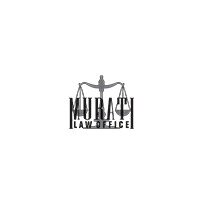Best Constitutional Law Lawyers in Ulcinj
Share your needs with us, get contacted by law firms.
Free. Takes 2 min.
List of the best lawyers in Ulcinj, Montenegro
About Constitutional Law in Ulcinj, Montenegro
Constitutional Law in Montenegro serves as the backbone of the nation's legal framework, outlining the fundamental principles for the functioning of government institutions and the protection of citizens' rights. In Ulcinj, as with other parts of Montenegro, Constitutional Law ensures that the rights conferred by Montenegro's Constitution are upheld and provides a mechanism for addressing issues related to government powers, individual freedoms, and the application of laws.
Why You May Need a Lawyer
There are various situations where individuals might seek legal counsel in the realm of Constitutional Law. Common scenarios include challenges to the lawfulness of government actions, violations of fundamental rights such as freedom of speech or assembly, issues related to discrimination, and disputes over electoral laws. Additionally, businesses and organizations might require legal guidance to ensure compliance with constitutional regulations, particularly in areas like privacy rights and regulatory frameworks.
Local Laws Overview
In Ulcinj, the application of Constitutional Law is framed by the Constitution of Montenegro, which establishes the rights of citizens, the separation of powers, and the responsibilities of state authorities. Key aspects of local laws include the protection of minority rights, the right to a fair trial, the freedom of movement, and the autonomy of local governance. Understanding these laws is vital for navigating legal challenges and ensuring that one's constitutional rights are protected and exercised appropriately.
Frequently Asked Questions
1. What is Constitutional Law?
Constitutional Law is the body of law that deals with the interpretation and implementation of a country's constitution. It outlines the rights of individuals and the powers of government entities.
2. How can Constitutional Law affect me?
Constitutional Law affects everyone by defining and protecting individual freedoms and outlining the governmental structure and processes that impact daily life.
3. Can I challenge a law I believe is unconstitutional?
Yes, individuals can challenge laws they believe to be unconstitutional. This process often involves legal proceedings in which a court evaluates the law's compatibility with the Constitution.
4. How are human rights protected under Constitutional Law in Montenegro?
Montenegro’s Constitution enshrines various human rights, including equality before the law, freedom of expression, and protection from discrimination, which are upheld by legal institutions.
5. What is the process for challenging a violation of constitutional rights?
Typically, one would seek legal advice, file a complaint or petition with the relevant court, and proceed through the judicial system to address the violation.
6. Are there specific constitutional considerations in Ulcinj?
While the fundamental principles are consistent nationwide, Ulcinj may have specific regional considerations related to its cultural and linguistic diversity, affecting issues like minority rights.
7. How does Constitutional Law relate to local governance in Ulcinj?
It ensures that local governance adheres to the standards and principles outlined in the national Constitution, particularly in areas regarding autonomy and the protection of rights.
8. Can businesses be affected by Constitutional Law?
Yes, businesses must comply with regulations influenced by Constitutional Law, such as those related to employee rights, privacy, and non-discrimination policies.
9. What should I do if I need constitutional legal advice?
Seeking out a lawyer who specializes in Constitutional Law is advisable. They can provide guidance based on your specific situation and navigate the complexities of the legal system.
10. How important is it to be aware of Constitutional Law?
Awareness allows individuals to understand their rights and responsibilities, empowering them to advocate for themselves effectively and aid in monitoring governmental authority.
Additional Resources
For those seeking further information or assistance, consider reaching out to the Constitutional Court of Montenegro, legal aid organizations, and the Ombudsperson's Office for Human Rights. Universities offering legal education and research institutes focusing on constitutional matters may also provide valuable insights and support.
Next Steps
If you need constitutional legal assistance, start by consulting with a qualified legal professional experienced in Constitutional Law. Collect all relevant documents and information about your case, and be prepared to discuss your situation in detail. Consider attending informational sessions or workshops on Constitutional Law for additional understanding. Lastly, maintain awareness of any changes in the legal landscape that might affect your case.
Lawzana helps you find the best lawyers and law firms in Ulcinj through a curated and pre-screened list of qualified legal professionals. Our platform offers rankings and detailed profiles of attorneys and law firms, allowing you to compare based on practice areas, including Constitutional Law, experience, and client feedback.
Each profile includes a description of the firm's areas of practice, client reviews, team members and partners, year of establishment, spoken languages, office locations, contact information, social media presence, and any published articles or resources. Most firms on our platform speak English and are experienced in both local and international legal matters.
Get a quote from top-rated law firms in Ulcinj, Montenegro — quickly, securely, and without unnecessary hassle.
Disclaimer:
The information provided on this page is for general informational purposes only and does not constitute legal advice. While we strive to ensure the accuracy and relevance of the content, legal information may change over time, and interpretations of the law can vary. You should always consult with a qualified legal professional for advice specific to your situation.
We disclaim all liability for actions taken or not taken based on the content of this page. If you believe any information is incorrect or outdated, please contact us, and we will review and update it where appropriate.








